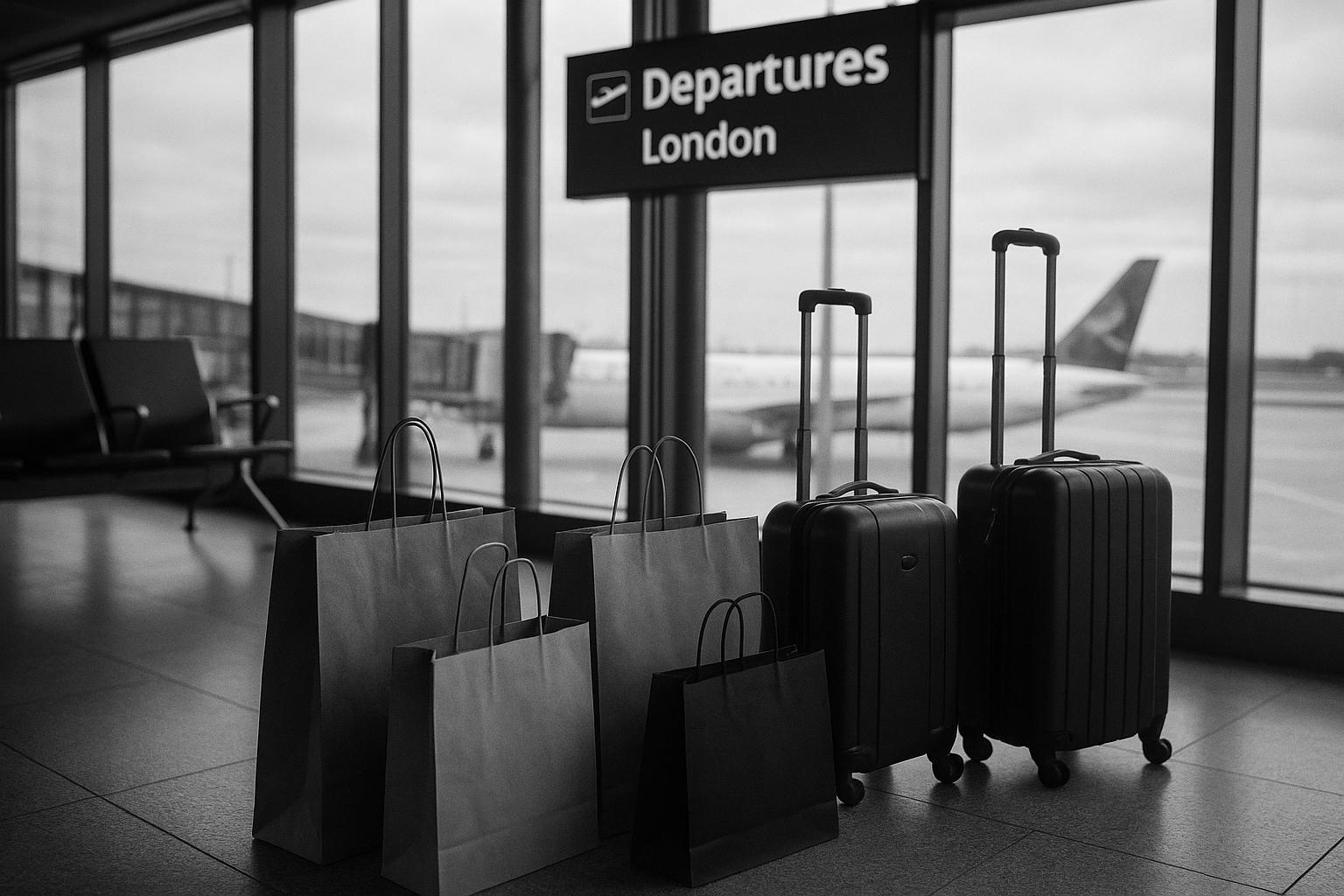Burberry executives have called on the UK government, specifically Chancellor Rachel Reeves, to reinstate the tax-free shopping scheme for foreign tourists in the upcoming autumn budget. The luxury brand argues that reviving the value-added tax (VAT) refund programme, which was abolished at the end of 2020 and briefly reinstated during Liz Truss’s short tenure before being scrapped again by Rishi Sunak, could “unlock further growth” by boosting international visitor spending and supporting jobs within the visitor economy. Burberry’s chief executive, Joshua Schulman, noted that since the VAT refund scheme was removed, the UK has been losing out, with affluent tourists from the US, Middle East, and Asia increasingly shopping in Paris and Milan rather than London. He urged the government to adopt “progressive policies” to place the UK on par with other European countries that continue to offer such schemes.
Currently, UK sales represent less than 10% of Burberry’s overall revenue, but the company believes that reinstating the VAT refund could significantly increase this share by attracting more tourists. Burberry’s chief financial officer, Kate Ferry, highlighted the potential for considerable growth if tourism rebounds in line with the tax policy. The company’s recent financial results provide some encouragement, with comparable store sales up 2% in the second quarter, marking the first such growth in two years, and a substantial reduction in losses. Ferry also indicated that ongoing restructuring efforts, expected to include around 1,700 job cuts worldwide by 2027, are aimed at cutting costs and improving profitability moving forward.
The push to bring back the VAT refund scheme is not unique to Burberry. Business groups such as the Association of International Retail (AIR) have advocated for the restoration, suggesting that such a move could inject an estimated £3.7 billion into the UK economy by attracting a “vast new market” of 450 million EU consumers, alongside visitors from other global markets. The AIR submission emphasises that unlike other European countries, the UK currently cannot offer VAT rebates to EU shoppers, which places London at a competitive disadvantage as a global shopping destination.
The history of tax-free shopping in the UK reflects broader post-Brexit trade and policy shifts. The VAT Retail Export Scheme (VAT RES) was initially withdrawn after the Brexit transition period ended in December 2020. Although it briefly returned in 2022 under Chancellor Kwasi Kwarteng’s mini-budget, the measure was quickly reversed by his successor, Jeremy Hunt, who cited the scheme’s unaffordability. Hunt argued that maintaining the VAT refund repeal could yield over £1 billion in additional tax revenue in 2024, a figure that could increase in subsequent years. However, retail and tourism leaders criticised this reversal as a “hammer blow” to the UK’s tourism sector and high streets, contending that the long-term economic benefits of tourist spending outweigh the short-term fiscal savings.
Recent consumer research reflects growing public support for reinstating the tax-free shopping scheme. A survey conducted by the Retail Technology Show (RTS) found that half of UK consumers favour bringing back VAT or duty-free shopping for tourists, viewing it as a measure that would bolster retail spending and aid the recovery of the retail sector.
The debate around the VAT refund scheme underscores the tensions between fiscal policy and economic competitiveness in the post-Brexit era. While the UK government prioritises immediate tax revenues, business leaders and economists highlight the strategic importance of attracting international shoppers in a global luxury goods market. For a prestigious brand like Burberry, winning back tourist spending could play a key role in achieving its broader strategic goal of reversing recent declines and fostering sustainable growth amidst ongoing restructuring.
📌 Reference Map:
- [1] (The Guardian) - Paragraphs 1, 2, 3, 4, 5, 6
- [2] (Evening Standard) - Paragraph 2, 3
- [3] (Evening Standard) - Paragraph 3, 4
- [4] (London.gov.uk report) - Paragraph 3
- [5] (Euronews) - Paragraph 3, 4
- [6] (Evening Standard) - Paragraph 5
Source: Noah Wire Services
